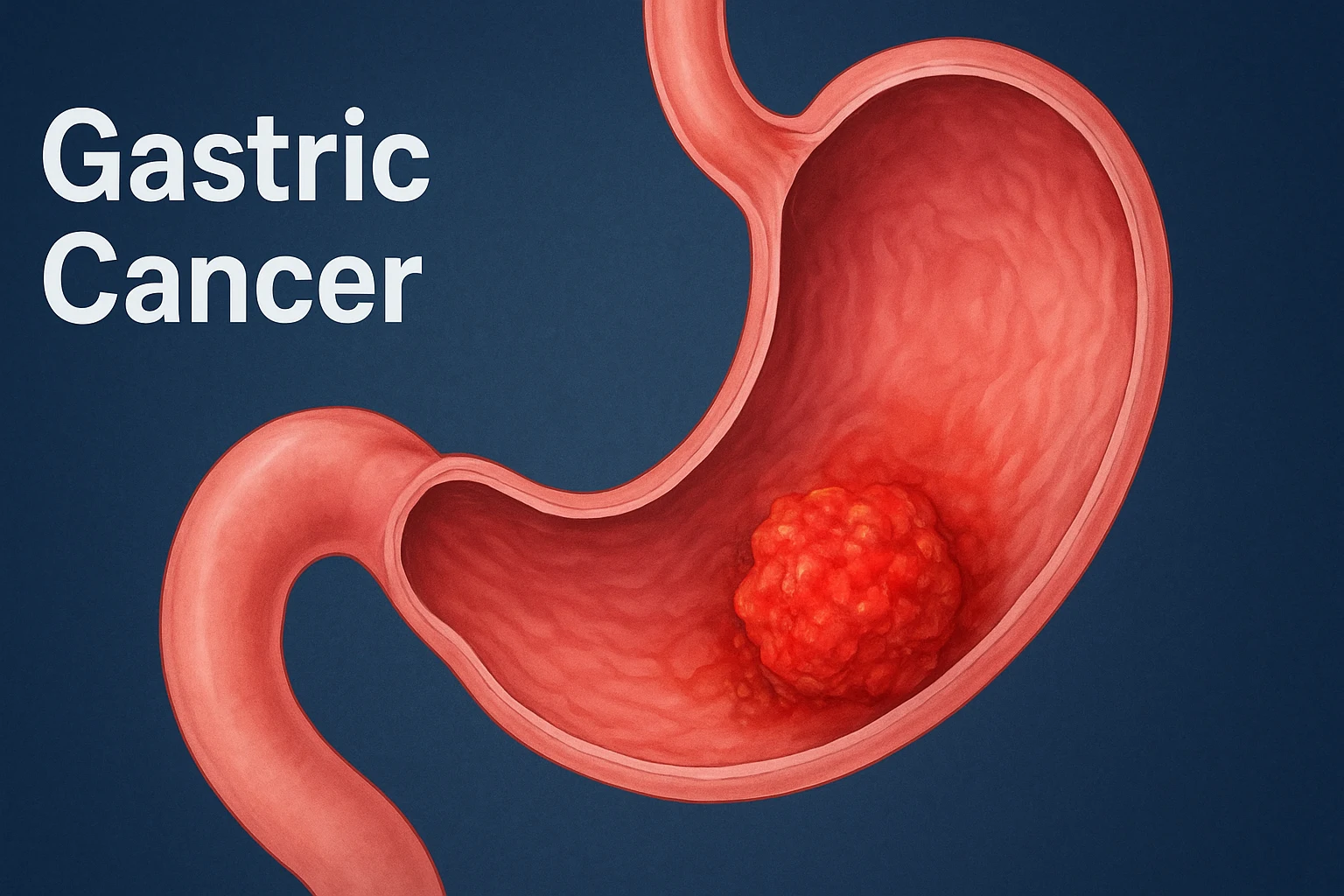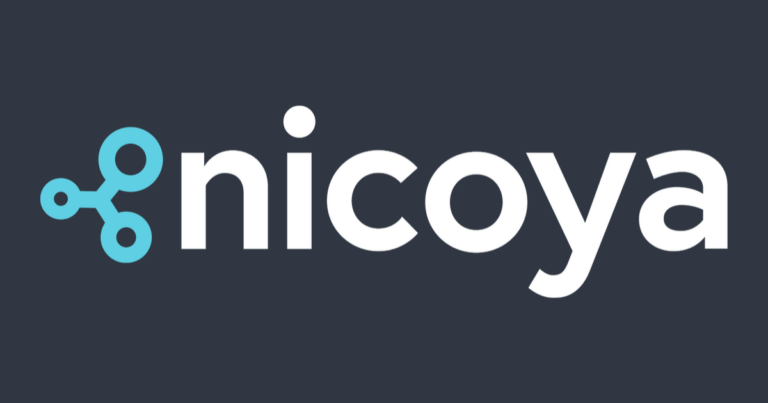Arcus Biosciences, Inc., a clinical-stage global biopharmaceutical company focused on developing innovative cancer therapies, announced the first overall survival (OS) results from Arm A1 of its Phase 2 EDGE-Gastric study. The trial evaluates domvanalimab, an Fc-silent anti-TIGIT antibody, in combination with zimberelimab, an anti-PD-1 monoclonal antibody, plus chemotherapy in patients with locally advanced unresectable or metastatic gastric, gastroesophageal junction (GEJ), or esophageal adenocarcinoma. The study is being conducted in collaboration with Gilead Sciences, and the new results will be presented at the ESMO 2025 Congress (Presentation Number 2112MO).
Remarkable Survival Outcomes Beyond Standard of Care
The results from Arm A1 demonstrated a median overall survival (OS) of 26.7 months, a figure that represents a significant improvement compared to historical benchmarks for standard-of-care treatments in this setting.
“It is impressive to see that 50 percent of the patients enrolled in Arm A1 of the EDGE-Gastric study went on to live for more than two years,” said Dr. Sun Young Rha, professor of Medical Oncology and director of the Songdang Institute for Cancer Research at Yonsei University College of Medicine in Seoul, Korea. “A 26.7-month median overall survival is well beyond what would be required to demonstrate clinically meaningful benefit over standard of care.”
Dr. Rha’s comments underscore the potential of domvanalimab-based combinations to redefine the therapeutic landscape for advanced gastroesophageal cancers, which remain difficult to treat with existing immunotherapy and chemotherapy regimens.
Reinforcing the Potential of Anti-TIGIT-Based Therapies
“These survival results add to the growing body of evidence supporting domvanalimab and highlight the role of anti-TIGIT-based combinations across multiple cancer types,” said Richard Markus, M.D., Ph.D., chief medical officer of Arcus Biosciences. “Our Fc-silent anti-TIGIT approach may provide differentiated efficacy and safety advantages. These promising data reinforce our confidence in the ongoing Phase 3 STAR-221 study, which is evaluating this combination in a larger patient population.”
The encouraging survival data are complemented by strong progression-free survival (PFS) and objective response rate (ORR) outcomes, showing durable clinical benefit with extended follow-up.
Detailed Results from EDGE-Gastric Arm A1
As of the data cutoff on March 3, 2025, a total of 41 patients had been enrolled and treated. Median study follow-up was 26.4 months, and the median time on treatment was approximately 49 weeks (ranging from <1 to 117 weeks). The combination demonstrated consistent efficacy across all PD-L1 subgroups, reinforcing its potential applicability to a broad range of patients.
Key Efficacy Findings:
| Parameter | Overall (N=41) | PD-L1 Positive (≥1%) | PD-L1 High (≥5%) |
|---|---|---|---|
| Median OS (months, 90% CI) | 26.7 (18.4, NE) | 26.7 (19.5, NE) | NE (17.4, NE) |
| 24-month OS rate (%) | 50.2 | 53.8 | 56.3 |
| Median PFS (months, 90% CI) | 12.9 (9.8, 14.6) | 13.2 (11.3, 15.2) | 14.5 (11.3, NE) |
| 24-month PFS rate (%) | 25.9 | 24.9 | 31.3 |
| Confirmed ORR (%) | 59 | 62 | 69 |
Note: One patient lacked tissue for central PD-L1 scoring but was PD-L1 low by local testing.
These data suggest that the combination not only prolongs survival but also maintains meaningful disease control for extended periods.
Strong Safety and Tolerability Profile
At the time of analysis, no unexpected safety signals were observed. The regimen of domvanalimab plus zimberelimab and chemotherapy was generally well tolerated, with a safety profile comparable to that of anti-PD-1 therapy combined with chemotherapy.
Immune-mediated treatment-emergent adverse events (TEAEs) related to domvanalimab and/or zimberelimab occurred in 9 patients (22%), while infusion-related reactions were reported in 3 patients (7%). Most adverse events were manageable and consistent with expectations for immunotherapy-based regimens.
Ongoing Development and Future Outlook
Both domvanalimab and zimberelimab are investigational molecules, and neither has yet received regulatory approval anywhere globally. Arcus and Gilead continue to explore the potential of this dual immunotherapy platform across several tumor types, including lung and gastrointestinal cancers.
The Phase 3 STAR-221 trial, now underway, will further evaluate the domvanalimab and zimberelimab combination plus chemotherapy versus standard of care in a larger cohort of patients with advanced gastric and GEJ adenocarcinomas. The success of this study could pave the way for a new frontline standard in the treatment of these challenging cancers.
Conclusion
The first OS data from Arm A1 of the Phase 2 EDGE-Gastric study provide compelling evidence that the combination of domvanalimab, zimberelimab, and chemotherapy delivers substantial and durable survival benefits for patients with advanced gastric and gastroesophageal cancers. With a median OS of 26.7 months and strong safety outcomes, Arcus Biosciences and Gilead Sciences are poised to advance this regimen into late-stage development, marking a significant step forward in the quest to improve outcomes for patients facing these aggressive malignancies.
About the EDGE-Gastric Study
The ongoing, multi-arm, multi-cohort global Phase 2 EDGE-Gastric trial (NCT05329766) is evaluating the safety and efficacy of various combinations of the Fc-silent anti-TIGIT antibody domvanalimab and the anti-PD-1 antibody zimberelimab in patients with locally advanced unresectable or metastatic gastric (G), gastroesophageal junction (GEJ) or esophageal (E) adenocarcinoma. Patients in Arm A1, with previously untreated G/GEJ/E adenocarcinoma, received 1600mg of domvanalimab intravenously (IV) every four weeks (Q4W) plus 480mg of zimberelimab IV Q4W + FOLFOX (oxaliplatin 85 mg/m2 IV, leucovorin 400mg/m2 IV, fluorouracil 400mg/m2 IV bolus + 2400mg/m2 continuous 46-48-hour IV infusion) every two weeks.
About the STAR-221 Study
The ongoing, global STAR-221 trial (NCT05568095) enrolled approximately 1,050 participants with locally advanced unresectable or metastatic gastric, gastroesophageal junction, or esophageal adenocarcinoma. The primary endpoints of the study are overall survival in PD-L1-high tumors, PD-L1-positive tumors and in the intent-to-treat population (all PD-L1 levels); secondary endpoints include progression-free survival, objective response rate and duration of response. Participants were randomized 1:1 between two arms:
- 1600mg of domvanalimab intravenously (IV) every four weeks plus 480mg of zimberelimab IV every four weeks plus FOLFOX (oxaliplatin, leucovorin, fluorouracil) every two weeks or 1200mg of domvanalimab plus 360mg of zimberelimab every three weeks plus CAPOX (capecitabine and oxaliplatin) every three weeks
- 240mg of nivolumab IV every two weeks plus FOLFOX every two weeks or 360mg of nivolumab plus CAPOX every three weeks
About Domvanalimab
Domvanalimab is the first and most clinically advanced Fc-silent investigational monoclonal antibody that is specifically designed with Fc-silent properties to block and bind to the T-cell immunoreceptor with Ig and ITIM domains (TIGIT), a checkpoint receptor on immune cells that acts as a brake on the anticancer immune response. By binding to TIGIT with Fc-silent properties, domvanalimab is believed to work by freeing up immune-activating pathways and activate immune cells to attack and kill cancer cells without depleting the peripheral regulatory T cells important in avoiding immune-related toxicity.
Combined inhibition of both TIGIT and programmed cell death protein-1 (PD-1) is believed to significantly enhance immune cell activation, as these checkpoint receptors play distinct, complementary roles in anti-tumor activity. Domvanalimab is being evaluated in combination with anti-PD-1 monoclonal antibodies, including zimberelimab in multiple ongoing and planned early and late-stage clinical studies in various tumor types.
About Zimberelimab
Zimberelimab is an anti-programmed cell death protein-1 (PD-1) monoclonal antibody that binds PD-1, with the goal of restoring the antitumor activity of T cells. Zimberelimab has demonstrated high affinity, selectivity and potency in various tumor types.
Zimberelimab is being evaluated in the U.S. and globally as a foundational anti-PD-1 treatment option in multiple ongoing clinical studies in combination with other immunotherapies. Guangzhou Gloria Biosciences Co. Ltd., which holds commercialization rights for zimberelimab in greater China, has obtained approval for zimberelimab for the treatment of recurrent or metastatic cervical cancer and for relapsed or refractory classical Hodgkin’s lymphoma. Zimberelimab is not approved for any use in the U.S. or other regions outside of China. Gloria conducts its development and commercialization activities independent of Arcus and Gilead.



